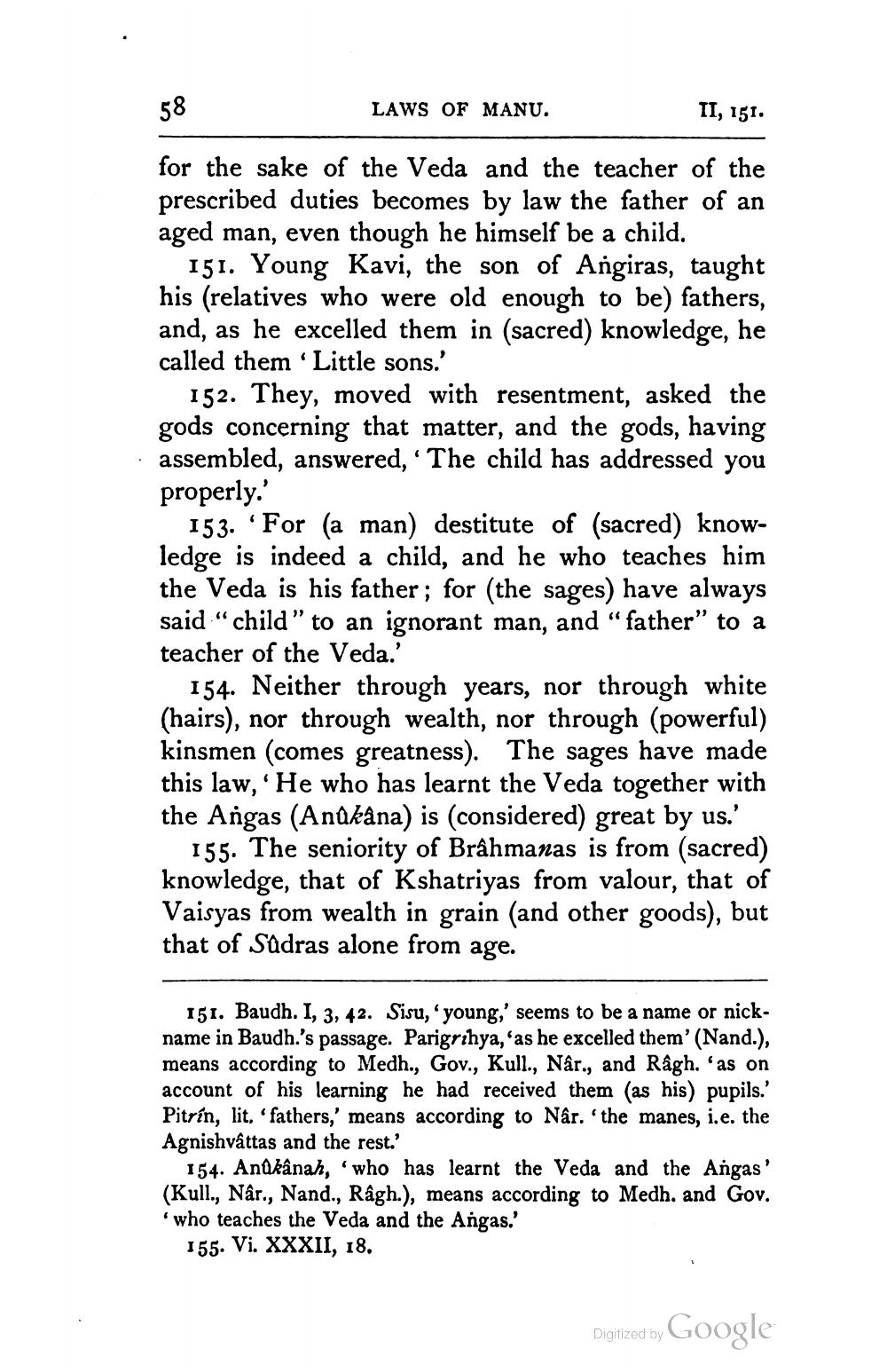________________
58
II, 151.
for the sake of the Veda and the teacher of the prescribed duties becomes by law the father of an aged man, even though he himself be a child.
LAWS OF MANU.
151. Young Kavi, the son of Angiras, taught his (relatives who were old enough to be) fathers, and, as he excelled them in (sacred) knowledge, he called them 'Little sons.'
152. They, moved with resentment, asked the gods concerning that matter, and the gods, having assembled, answered, 'The child has addressed you properly.'
(
153. For (a man) destitute of (sacred) knowledge is indeed a child, and he who teaches him the Veda is his father; for (the sages) have always said "child" to an ignorant man, and "father" to a teacher of the Veda.'
154. Neither through years, nor through white (hairs), nor through wealth, nor through (powerful) kinsmen (comes greatness). The sages have made this law, ' He who has learnt the Veda together with the Angas (Anûkâna) is (considered) great by us.'
155. The seniority of Brahmanas is from (sacred) knowledge, that of Kshatriyas from valour, that of Vaisyas from wealth in grain (and other goods), but that of Sudras alone from age.
151. Baudh. I, 3, 42. Sisu, 'young,' seems to be a name or nickname in Baudh.'s passage. Parigrihya, 'as he excelled them' (Nand.), means according to Medh., Gov., Kull., Nâr., and Râgh. 'as on account of his learning he had received them (as his) pupils.' Pitrín, lit, 'fathers,' means according to Nâr. 'the manes, i.e. the Agnishvâttas and the rest.'
154. Anûkânah, 'who has learnt the Veda and the Angas' (Kull., Nâr., Nand., Râgh.), means according to Medh. and Gov. 'who teaches the Veda and the Angas.' 155. Vi. XXXII, 18.
Digitized by Google




